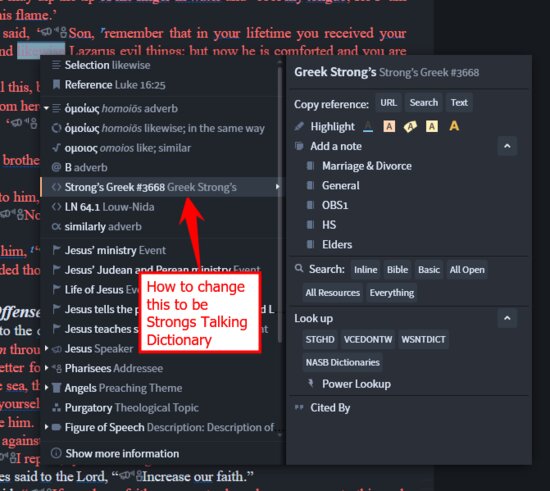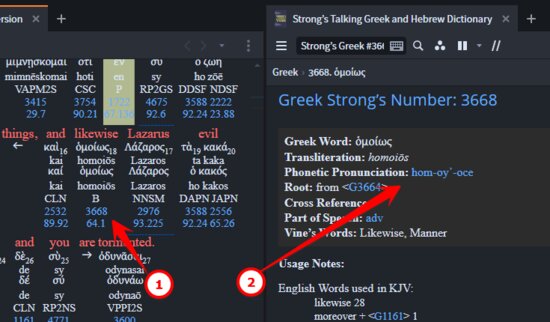I have Strong's Talking Greek and Hebrew Dictionary from WordSearch...
I've checked my collections... only have Strong's Talking Dictionary in there.
I check the Prioritize in my library... only have Strong's Talking Dictionary in there...
Is there a way to change what resource is used when I right-click on an English word in the Bible?
For example... Luk 16:25... I right-click on the word "likewise" and Strong's Dictionary pops up (illustrated below)... But is there a way to change that Strong's Dictionary to be Strong's Talking Dictionary instead?

I can click on the Interlinears Icon.... then click on the Strongs number for "Likewise" and my Strong's talking will open up and I can get the pronunciation that way...

But it would seem reasonable that I could do the same thing in the first step... if I could change which Strong's is being referenced.
What am I missing?